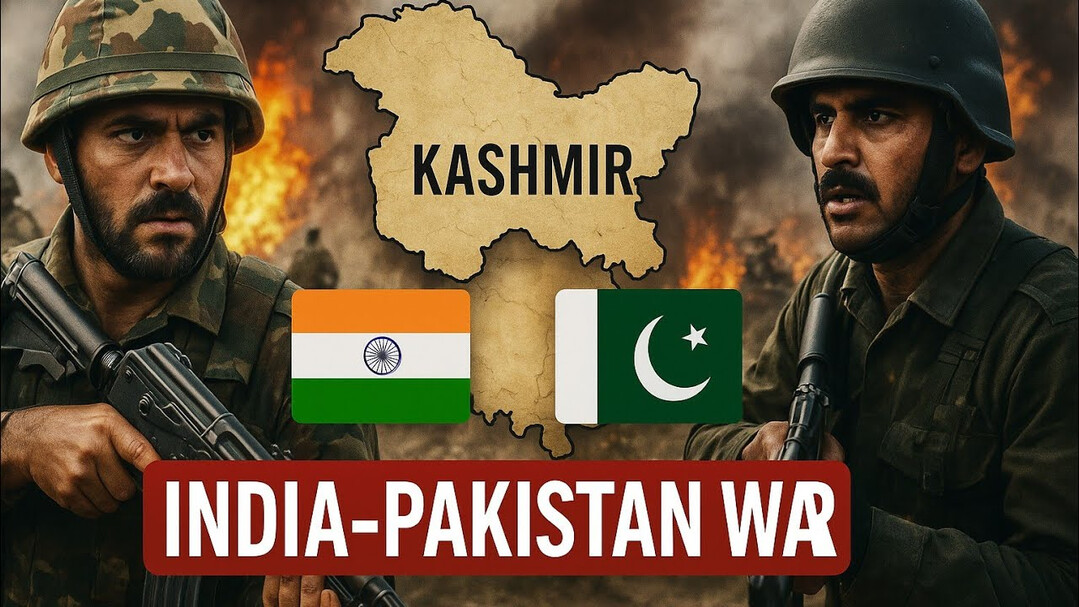
Decades of animosity between India and Pakistan are once again simmering, with recent escalations raising concerns about a renewed cycle of conflict rooted in the disputed Kashmir region. The enduring rivalry, stretching back over 70 years, reached a perilous peak in 2019, bringing the two nuclear-armed neighbors to the precipice of a potential nuclear crisis.
The seeds of this protracted conflict were sown in 1947, with the partition of British India into independent India and Pakistan. The fate of Kashmir, a region with a majority Muslim population but ruled by a Hindu elite, became an immediate point of contention. The decision of the ruling minority to accede to India ignited the first Indo-Pakistani War (1947-1949), which ultimately resulted in the division of Kashmir along a UN-mediated ceasefire line, with Pakistan administering the northwest and India controlling the central and southern parts.
From Conventional Wars to Nuclear Standoff
The division did little to quell the tensions. The two nations engaged in two more major wars: in 1965, which ended in a ceasefire brokered by the Soviet Union, and in 1971, triggered by the independence of Bangladesh (formerly East Pakistan), which led to the establishment of the Line of Control (LoC) as the de facto border.
The military landscape shifted dramatically in the 1980s and 1990s as both India and Pakistan embarked on nuclear weapons programs. By the turn of the millennium, both had conducted successful nuclear tests, becoming de facto nuclear powers outside the Nuclear Non-Proliferation Treaty (NPT). This nuclearization significantly amplified the stakes of any potential conflict. The last full-scale war between the two was the Kargil War in 1999, sparked by the intrusion of Pakistani soldiers into the Kargil heights on the Indian side of Kashmir. Sporadic clashes and cross-border skirmishes have continued since.
The Hair-Raising Crisis of 2019
The most recent period of intense crisis occurred in 2019. A suicide bombing by a Pakistan-based militant group in Indian-administered Kashmir resulted in the deaths of over 40 Indian security personnel. India retaliated with airstrikes deep inside Pakistani territory, pushing the already strained relationship to a breaking point.
The gravity of the situation was brought into stark relief by former US Secretary of State Mike Pompeo in his 2023 memoir. Pompeo revealed that the world was unaware of how close India and Pakistan came to nuclear war in February 2019, stating that US intervention was crucial in de-escalating the crisis. His account sent shockwaves through the international community, underscoring the catastrophic potential of the ongoing rivalry.
Geopolitical Chessboard and the Specter of Escalation
The India-Pakistan conflict is further complicated by the involvement of major global powers, raising concerns about potential escalation. The United States has been increasingly aligning with India to counter China's growing influence in the region. Conversely, China has historically maintained close ties with Pakistan, providing military and economic support. Russia, a long-time arms supplier to India, also has a vested interest in the regional dynamics.
United Nations Secretary-General spokesperson Stéphane Dujarric has voiced the international community's apprehension, stating that "the world cannot afford a military confrontation between India and Pakistan." This highlights the understanding that a regional conflict could quickly spiral into a global security threat.
Military Balance and the Unthinkable War
Assessing the potential outcome of a full-scale war is fraught with uncertainty. India is modernizing its military, reducing its reliance on aging Russian equipment and acquiring Western fighter jets. Pakistan is also bolstering its capabilities with advanced Chinese aircraft. Both nations possess significant military forces and, crucially, nuclear arsenals, making a full-scale war an unimaginable catastrophe with the potential for immense loss of life and regional destabilization.
While experts believe a direct, large-scale conflict is unlikely, they caution that localized skirmishes, terrorist attacks, and retaliatory actions could perpetuate a dangerous cycle of violence. The volatile situation in Kashmir and the presence of hardline elements on both sides remain significant risk factors for unpredictable escalations.
Ultimately, the India-Pakistan relationship, marked by over seven decades of conflict and now shadowed by the specter of nuclear weapons, remains a major concern for the international community. Dialogue, diplomatic engagement, and constructive mediation efforts are urgently needed to find lasting solutions. The near-nuclear crisis of 2019 serves as a stark reminder of the perilous path the two nations are treading, urging them to de-escalate tensions and seek a peaceful path forward.
[Copyright (c) Global Economic Times. All Rights Reserved.]






























